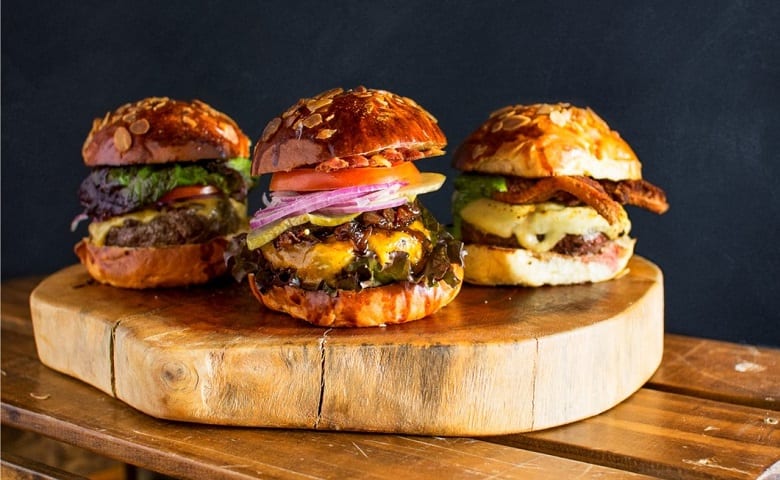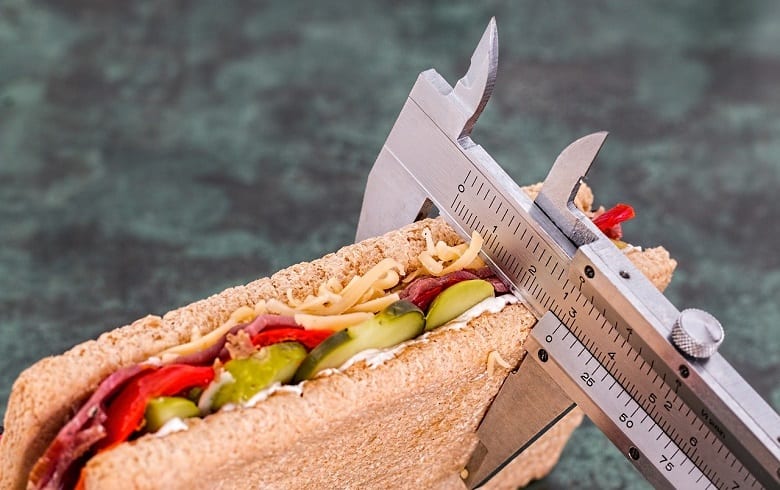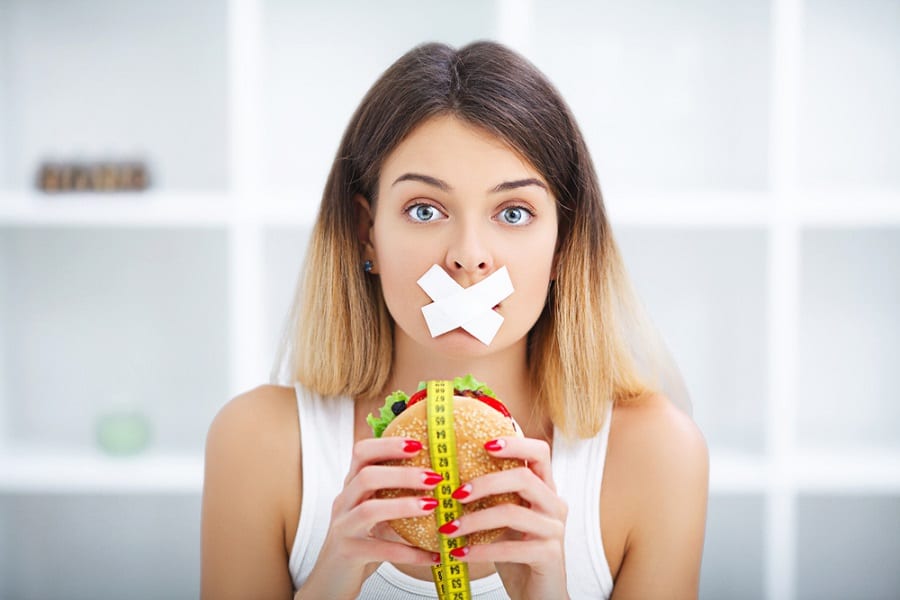You can find a lot of weight loss information on the internet today.
However, not everything you read about weight loss is the absolute truth. There’s so much misinformation on weight loss, instigated by so-called gurus, dieticians, health specialists, and others.
You should tell apart what’s fiction and what’s reality. In this blog post, we aim to do just that. Here we have tried to dispel some popular myths surrounding weight loss.
When you’re equipped with this knowledge, you will be able to avoid shady weight loss practices that are so widespread today.
Myth # 1: All Fats Are Bad

How many times have you heard that all fats are bad for you? Probably hundreds of times.
But here’s the truth about fats: many fats are good for you. Not all fat is unhealthy. Any diet that cuts a nutrient out completely is suspect. Yes, some fat is bad and is linked to direct weight gain, such as the ones found in highly processed food. But please note that not all fats cause weight gain.
Healthy fats such as monounsaturated and polyunsaturated fats are good fats as they are great for your heart and cholesterol. These fats prevent risks of high cholesterol levels and heart diseases.
Plus, several studies have shown that a high-fat Mediterranean diet, which is rich in nuts and olive oil, is also quite healthy and does not promote weight gain.
Myth # 2: Weight Loss Supplements Work
Sellers of weight loss supplements make big claims that their products can help you achieve that perfect body.
However, there’s very little scientific evidence that proves weight loss supplements actually work.
You probably have heard of a supplement claiming that their products can help you shed calories by blocking the absorption of carbs, but there’s no clinical proof to back up this statement.
These weight loss supplements are rarely effective. They can help you shed a few extra calories at best; nothing more.
Myth # 3: Dieting Is the Only Way to Lose Weight

Did you know there are over 100+ diets out there? You possibly can’t try each of them to see which one works for you.
Most people think that they need to follow a certain diet to lose weight successfully. However, that couldn’t be further from the truth. Dieting is not the secret ingredient to lose weight; rather, a healthy lifestyle is.
You need to focus on healthy eating, cutting on junk food, drinking tons of water, doing exercises, and follow a host of other healthy activities in order to maintain an ideal weight.
Myth # 4: Skipping Meals Is a Good Way to Lose Weight
It’s not!
In fact, it will lead to weight gain. What happens is that when individuals want to lose weight, they may go on about skipping breakfast, lunch, or dinner to shed extra pounds. But this plan often backfires them as they usually end up snacking more often causes them to snack more later in the day.
All in all, skipping meals is a bad idea whether you want to lose weight or not. You miss out on so many important nutrients that can terribly affect your overall health.
Plus, you feel tired and lethargic, which impacts your routine. You find it hard to focus on your work and do other crucial activities.
Myth # 5: Snacking Makes You Gain Weight
Only if you’re snacking on unhealthy food such as carb-loaded chips, pizza, burgers, etc.
According to nutritionists, eating between meals is good for you, given that you eat healthy food. These experts further recommend you eat five small meals a day rather than three large ones so you can turn your snacks into mini meals.
The reason why dieticians suggest this is to keep you from binge eating or overeating, which is the number-one cause of weight gain.
Healthy snacking is always appreciated. For instance, include more fruits, nuts, seeds, or whole grains in between your meals. These food items are wholesome and quite nourishing and will keep hunger pangs at bay.
Myth # 6: It Doesn’t Matter What You Eat As Long As You Don’t Cross Your Calorie Limit

The quality of food you eat matters because it plays a huge role in keeping you fit and healthy.
You should eat fully balanced food, so you get a natural supply of all the necessary nutrients, including protein, vitamins, calcium, magnesium, and others. You can only benefit from essential nutrients if you incorporate a wide variety of healthy foods into your regular meals.
Eating only one type of food or a food that helps you stick to your calorie limit won’t help you stay healthy in the long run. You can suffer from a nutrient deficiency, which can give rise to a lot of health concerns.
Myth # 7: Steer Clear of Alcohol Completely to Lose Weight
Several weight loss plans cut back on the booze because you must know, there are hundreds of “hidden” calories in alcohol. While heavy drinking can be detrimental to your weight loss plan, occasional drinking is not.
You can enjoy your favourite wine or beer now or then and still not gain those extra pounds. But if you continue to drink every day or frequently, it will have an adverse impact on your body.
Chances are you will put on a few more pounds than shedding them.
Myth # 8: If You Are Thin, You Are Healthy
Just because you are thin doesn’t mean you are healthy. In a similar way, if you are obese, it doesn’t mean you are unhealthy.
Having said that, it’s true that most people with obesity are at a greater risk of developing chronic illnesses such as heart diseases, type 2 diabetes, or some types of cancer.
But most thin people can suffer from these (or other) diseases as well. Most thin people are weak too. Due to a lack of proper diet, they may suffer from a nutrient deficiency. To say that being slim is healthy is wrong.
At the end of the day, you should be healthy.
Myth # 9: A Detox Diet Is a Great Way to Lose Weight
You can’t consider a clean start with a detox diet. It’s similar to crash diets as it restricts you from specific food groups, which means it may deprive your body of important nutrients or calories for a specific time period.
Also, several studies have proven that detox diets result in weight gain. You keep your body deprived of certain foods for a specific time range, and when you reintroduce foods again, you end up eating more and gain more weight.
According to experts, a detox diet may help you drop a few pounds, but you’re likely to gain it back. Because of this, you don’t accomplish anything, and it’s really not a healthy lifestyle approach.
Myth # 10: Losing Weight Means Giving Up on Tasty Food

Most people believe this because they think healthy food is bland and tasteless.
However, that’s far from the case. Today, you can cook healthy foods using organic and flavoursome ingredients. To enjoy good food, you no longer need to look for unhealthy fast foods.
You can prepare yummy food with healthy ingredients as well. You just need to know how to prepare them to enhance their flavours.
Myth # 11: The Alkaline Diet Helps Change Your Body Cells
Which, in turn, helps you lose weight.
This is nothing but a myth. You can’t transform your body cells with alkaline foods such as dark, leafy greens. In other words, the alkaline diet cannot guarantee your weight loss.
Myth # 12: Fat Loss Is Linear
It’s not.
You can’t expect your weight loss process to work in a linear format. It’s possible that you may lose a few pounds in a week, but none the next week, or gain some instead.
You need to be patient when aiming to lose weight. Your body may also take a while to adjust to the change in your lifestyle. Therefore, you will need to give your weight loss program some time and effort.
Remember that as long as you follow a healthy diet plan and drop a few pounds consistently, there are chances for you to achieve your goal in the long run.
Conclusion
We hope you stop believing the weight loss myths debunked here and spread this acquired information to those around you; so that they also become educated readers and consumers like you!


